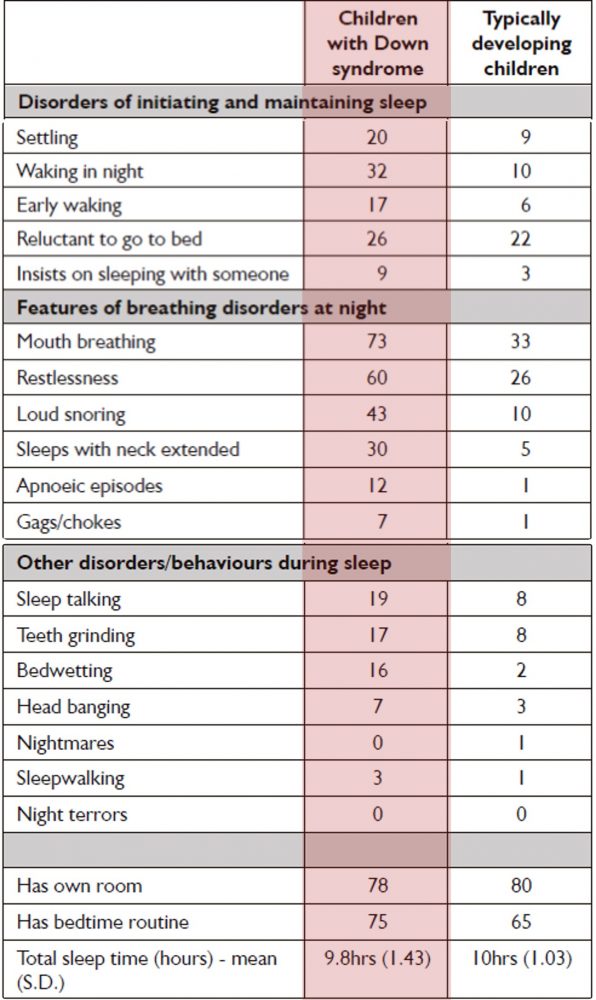Sleep
Sleep is a vital, often neglected, component of our overall health and wellness, as it enables the body to repair and be fit. In addition, sleep is important for overall mental and physical health as many medical professionals point to poor sleep as a major contributor to chronic health issues.
According to research, 50-76% of individuals with Down syndrome experience difficulty with the onset of sleep, poorer REM sleep quality, and decreased ability to stay asleep. People with Down syndrome sleep poorly, with more fragmented sleep and more frequent awakenings than typically developing people.

Research also indicates that children with sleep maintenance problems had significantly worse daytime behaviour ratings. Their parents had higher stress levels than the children with sleep onset problems or even those with breathing-related sleep disturbance, such as sleep apnea. Night waking seems to have the most serious consequences for the child and the family.
A person with Down syndrome may not realize or be able to communicate that they are suffering from poor or disturbed sleep. As a parent or caregiver, it is crucial to be aware of signs that may indicate a person has sleep problems. These can include irritability, anxiety, overactivity, aggression, impaired attention, and daytime sleepiness.
Two common causes of sleep disturbances for individuals with Down syndrome are physical and behavioural.
Physical:
- Structural issues within the body causing sleep disturbances such as obstructive sleep apnea
- Illness and medical issues across the lifespan can also impact the quality and quantity of sleep
Behavioural:
- Sleep onset difficulties include a reluctance to go to bed, inability to settle without a parent present, and insisting on sleeping with someone
- Sleep maintenance difficulties include night waking problems, waking and getting up earlier than the family’s accepted rising time
It is vital to remember that the need to sleep is biological, but how we sleep is learned. Treating sleep disturbance is critical to ensure good quality of life for parents and children/adults alike.
At DSRF, occupational therapy can help with:
- Providing education on sleep, obstructive sleep apnea and DS
- Helping with overnight sleep test referral
- Preparing for the sleep test
- Funding for CPAP
- Preparation for initial CPAP Consult
- Adherence to CPAP
- Create an at-home sleep program
- Behaviour and sensory strategies
DSRF Resources
Other Resources
Obstructive Sleep Apnea & Down Syndrome
Down Syndrome Center at UPMC Children’s Hospital of Pittsburgh Podcast: Sleep Studies
